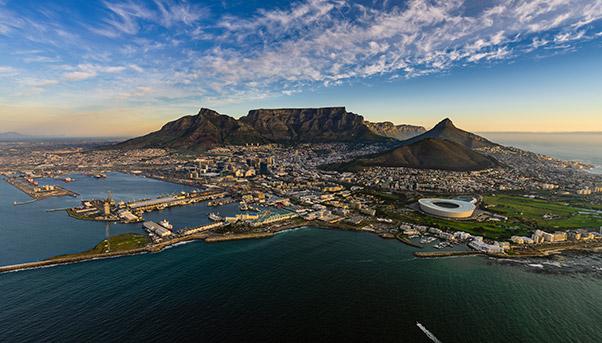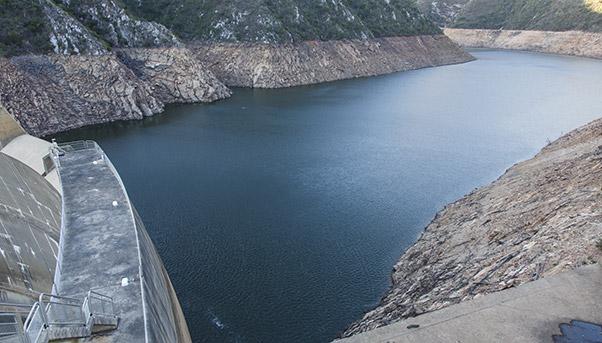
South Africa is in a state of national disaster as a result of a severe drought that has afflicted the western and southern regions of the country for the past three years.
The situation is so bad that its second biggest city, Cape Town, is warning residents it will turn off the taps if they do not use less water to save the little that remains in the reservoirs.
«The more you save, the better our chances to avoid running out of water», reads one of the banners on the city’s website, which informs residents that the latest limit on residential consumption is 50 litres per day per person. It warns them they risk being fined if they exceed the limit.
Cape Town’s water crisis before Day Zero
Although Cape Town has postponed the date when it threatens to turn off the taps – known as Day Zero – to June 4, it is still imminent, raising the prospect of the city becoming the first major urban centre in the world to suffer a water shortage, according to a January video report by Time, the U.S. weekly news magazine.
On February 15, the water level behind the dams that provide drinking water to the city was at 24.9%, according to a regularly updated indicator on the city’s website. When it reaches 13.5%, Day Zero will begin.
The city’s daily consumption has dropped from a little more than one billion litres before the drought to 566 million litres as of January 29, said a report by News24, an online news outlet in South Africa. But consumption has to drop further – down to 450 million litres a day – to avoid Day Zero, it added.
Once the taps are turned off, people will have to line up at water stations set up throughout the city to fill their jugs and bottles with their daily quota.
Desalination Plant
In an effort to meet the needs of its residents without straining the reservoirs more than it already has, Cape Town has commissioned the temporary installation of a desalination plant on the coast. The plan will start producing the first two million litres of an expected seven million a day in March, according to News24.
For its size, the plight of Cape Town is unique.
But it will not likely be the only one, given how the problem of water scarcity has become so aggravated by climate change and humanitarian disasters that the United Nations is trying to rally member countries to work together to find a solution.

South Africa’s drought in 2018: Fresh Water is like Blue Gold
Although water covers 71% of the Earth’s surface, only 4% is freshwater and only 0.5% of this water is suitable for human consumption, according to the U.N.
Regions faced with drought could see their gross domestic product decline by as much as 6% by 2050, according to estimates presented at a summit in Australia two years ago. Less available fresh water and the greater use of it could reduce the amount for cities by as much as two-thirds by 2050.
The images of depleted reservoirs outside Cape Town shown by broadcasters like the South African Broadcasting Corporation are dramatic. In some cases, the water has receded so much that the exposed bottom of a given reservoir resembles a desert.
A February 9 statement issued after a meeting held by an inter-ministerial task force was explicit in explaining the damage the drought was causing the economy.
«(The South African Weather Service) indicate that 2017 was the worst year in terms of rainfall as almost the whole country has received below normal rainfall», it said. «This denotes that the country as a whole has not recovered from the 2014 drought, with the Western Cape Province experiencing the worst drought in years».
«This challenge of drought shows a decline in various human activities such as farming», it added, explaining how it was exacerbating poverty and unemployment.
In order to avoid this worst case scenario from occurring, Cape Town, which is the capital of the province, is providing a series of advice on how to save water by making the most of social media.
For example, its website has a calculator that enables people to find out how much water they use by having insert the volumes of water they use for cleaning, cooking and other domestic chores.
It also provides a series of tips on how to save, like taking a sponge bath rather than a shower, collecting rain water and using a broom to clean the outdoor patio rather than water.
Cape Town has also imposed restrictions on the use of water for fountains and swimming pools, among many others.

